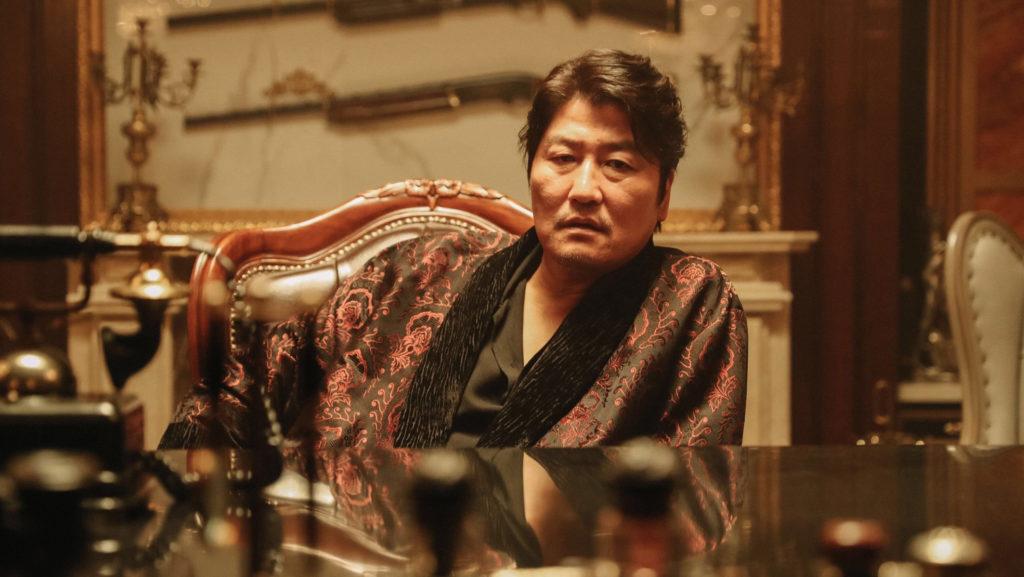The year is 1972, and Korean and Japanese citizens are addicted to methamphetamines. Ex-goldsmith Lee Doo-sam (Song Kang-ho) is about to begin his climb from drug peddler to the drug king of Korea.
Netflix’s historical drama “The Drug King,” which translates to “Ma-yak-wang” in Korean, is a film produced by Netflix’s Korean branch. It depicts the rise and fall of the most notorious drug boss in South Korea, Lee Doo-sam.
“The Drug King” spans from 1972 to 1980, starting at Lee Doo-sam’s first smuggling operation and ending at his arrest at prosecutor Kim In-goo’s (Jung-suk Jo) hands. For a movie about a drug boss, it spends a surprisingly small amount of time focusing on the drug operation. Instead, most of the movie revolves around Lee Doo-sam’s run from the law and his indulgences in an affluent lifestyle. Though the film is set up like South Korean “Breaking Bad,” it ends up being a slow burn commenting on Lee Doo-sam’s life rather than the effect Lee Doo-sam had on the drug smuggling industry.
Lee Doo-sam begins his career married to Seong Sook-kyeong (Kim So-jin). The couple struggles to make ends meet. After a run-in with a gangster and the collapse of the smuggling ring he was a part of, Lee Doo-sam is arrested. While in jail, he decides to start a drug ring in Japan, as he heard that the Japanese cannot get enough of a drug called “crank.” Using his wife as a proxy to the outside world, he sets in motion a series of events to be released from prison. Once out of jail, Lee Doo-sam steals the identity of a mental patient staying at his father-in-law’s prayer house. This allows him to be free and set up the beginnings of his drug empire.
The film offers a rather bleak portrait for Korea, as it takes place during the communist scares of the ’70s. “The Drug King” uses the bleakness of this time period as a way to lob insults and threats at the characters, often forcing them to decide between being called a “druggie” or a “commie.”
The set design during this slow-paced montage, though certainly not cheap, feels bland. Everything generally looks the same — run down and grayish–blue. Many of the shots are not dynamic and often involve slow deliberation of plans by Lee Doo-sam as he assembles his empire with his cousin Lee Doo-hwan (Kim Dae-myung). The scene feels slow because of the excessive lingering of shots, which feel somewhat jarring. The story is being delivered in these scenes, but the lack of consistent pacing detracts from the feeling the film is trying to give — that the series of events occurred quickly.
Once the empire is built, the film’s shot composition almost completely changes. Gone are the drab colors of the first act, replaced by vibrant reds and yellows of the upper class of Korea. The film, from the second act on, uses bland colors as a way to reference both Lee Doo-sam’s past and poverty and vibrant colors to refer to opulence. This use of color theory helps to set the tone of any scene just by using different colored lights.
While the dual storyline fails to impress, the sound design feels expertly crafted. The foley and overall sound qualities seem heavily inspired by ’70s-era movies, and the use of natural sound and light background music help to immerse the audience into the film.
A recurring problem the film suffers from is an overall lack of pacing. Many scenes feel overly padded and drawn out, and other scenes feel like they jump to the next one too quickly. This makes the movie feel much longer than it really is, as many scenes do not accomplish much in the overall arch of the film but rather feel added in to develop to the historical background of Lee Doo-sam. Many scenes, such as his uneventful trips and meetings, are entirely fluff and serve to do nothing other than reiterate Lee Doo-sam’s extravagant lifestyle.
“The Drug King” is a mixed bag of some fairly well-executed production, along with some less than stellar storytelling. Netflix’s historical drama provides a good idea of what Lee Doo-sam’s life might have been like but fails to keep a good enough pace to keep audiences entertained.




















